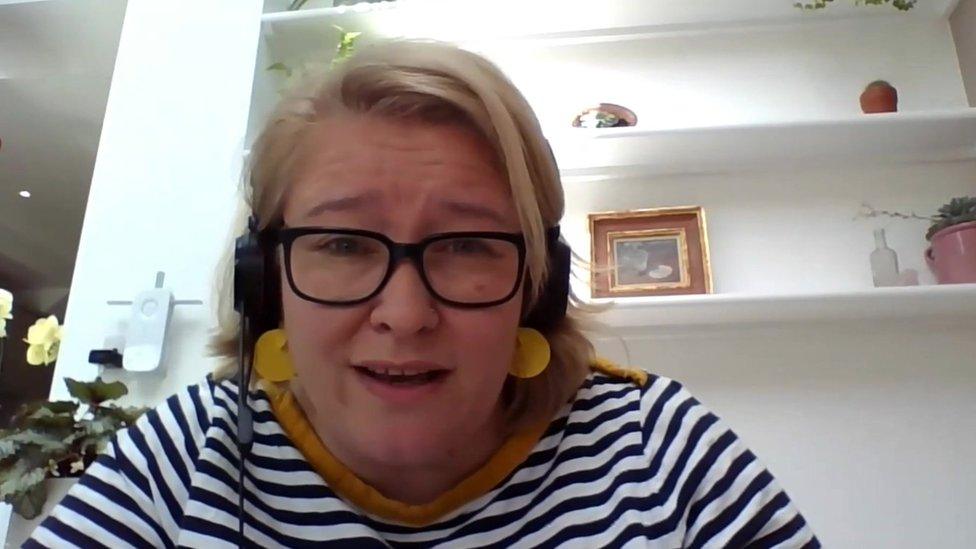LGBT charity Stonewall 'dictated policy' to Welsh government
- Published
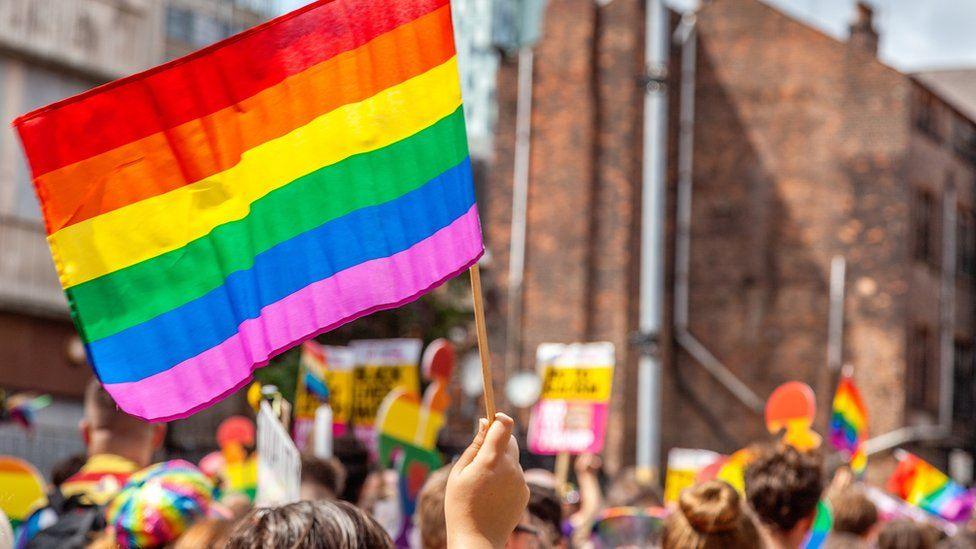
Tonia Antoniazzi says the Welsh government has shown "a contempt not only for the law, but also to anyone who wishes to speak up for women"
The Welsh government has been accused of being "dictated to" by an LGBT charity.
Labour MP Tonia Antoniazzi said the government promoted an "ideological culture" by adopting Stonewall's interpretation of the Equality Act, external.
Her comments were in response to a BBC investigation which revealed the Welsh government had adopted Stonewall's interpretation of equality law.
The Welsh government said its policy was in the "spirit of the law".
It added that its inclusive workplace and policies did not disadvantage, undermine or exclude any colleagues.
Protections for people based on factors including age, disability, race, religion, sex, sexual orientation, pregnancy and gender reassignment are enshrined in the Equality Act 2010.
However, in a document sent to Stonewall and seen by the BBC, the term "gender reassignment" has been replaced with the term "gender identity" in the Welsh government's Equality and Diversity Policy.
It is a characteristic not provided for in law, but something Stonewall has been campaigning for.
It could mean people with various gender identities, such as non-binary, would be protected in law.
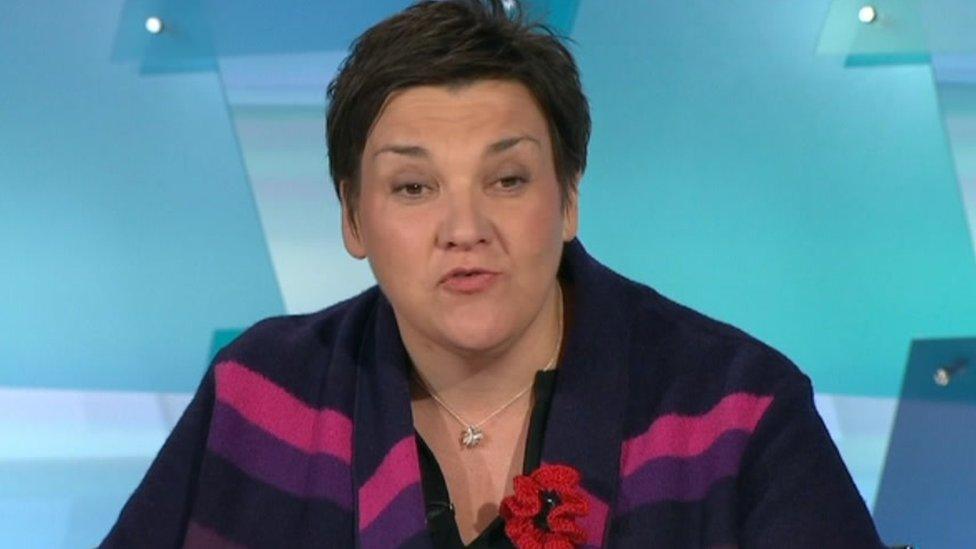
Labour's Tonia Antoniazzi accuses the Welsh government of "blatantly" misrepresenting the Equality Act
Critics of Stonewall's interpretation of the law argue that the term gender identity is too broad and it could undermine sex-based rights protected under the legislation.
Ms Antoniazzi said: "It is astonishing that the Welsh government can so blatantly misrepresent the Equality Act 2010 as dictated to by Stonewall.
"They are promoting an ideological culture and rewriting the Equality Act at the same time. To misrepresent the law in this way shows a contempt not only for the law, but also to anyone who wishes to speak up for women or who has concerns around safeguarding.
"I'd also like to know what other organisations the Welsh government draws on to test their policies and practices, and what their relationship is with Stonewall and the Senedd.
"This situation is risible, and as a Welsh Labour MP I am deeply disappointed that no minister has been available to respond to the BBC to defend their stance."
'Persuaded by Stonewall'
Ms Antoniazzi also said there was a "lack of transparency and independence around policy making".
"I would urge [the Welsh government] to provide a safe space for all staff to express their concerns without fear nor favour," she added.
The Welsh government works with LGBT charity Stonewall when updating its policies and it has been involved with two Stonewall schemes to promote diversity, including the Workplace Equality Index, which is a public ranking of organisations scored by Stonewall.
Documents, obtained under Freedom of Information laws by the BBC's Nolan Investigates podcast, revealed what the lobby group was asking organisations to do to improve their ranking on the Workplace Equality Index.
Robin Allen QC, who specialises in employment and equality law, said there was "nothing to stop the Welsh government having a more inclusive set of definitions of characteristics that they consider to be important in the way that they develop policies, what they can't do is exclude characteristics from the approach that they take".
He said he believed the Welsh government had been "persuaded by Stonewall to use the phrase gender identity to try and take, as Stonewall would say, a more modern approach that people's identity, in the general field of gender and sex, is much more fluid than simply being male or female".
However, he said gender identity "is not a protected characteristic as defined by the Equality Act 2010".
The Welsh government declined to be interviewed in the podcast, but a spokesman said: "We acknowledge that the terms gender identity and gender expression are not protected characteristics in the Equality Act 2010, but we use these terms to cover the Equality Act protected characteristic of 'gender reassignment'.
"We feel that these terms do not misrepresent the Equality Act in terms of the spirit of the law.
"The Equality Act's definition of gender reassignment covers trans status, gender identity and protects non-binary and gender fluid people too, as was recently ruled."
However, the Equality and Human Rights Commission (EHRC), the regulatory body responsible for enforcing the Equality Act 2010, said the term gender identity does not help explain who is covered by the law in terms of the Equality Act, as is suggested by Stonewall and the Welsh government.
It added that the Equality Act 2010 "provides protection against discrimination and harassment related to the protected characteristic of gender reassignment".
"To be protected from gender reassignment discrimination, you do not need to have undergone any specific treatment or surgery," EHRC said.
"You can be at any stage in the transition process - from proposing to reassign your sex, to undergoing a process to reassign your sex, or having completed it."
'Inclusive'
The Welsh government also said it was "proud to be an inclusive employer where all colleagues are supported to be themselves and reach their full potential".
"Our inclusive workplace and policies do not disadvantage, undermine or exclude any colleagues," the spokesman added.
"As an inclusive employer, we take part in a variety of workplace benchmarking activities to ensure we learn from best practice in other organisations. Stonewall are one of a number of organisations we draw on to test our policies and practices."
Stonewall said: "All our guidance on the Equality Act, including using the term gender identity, is based on the Equality and Human Rights Commission's Equality Act Code of Practice, which was recently reaffirmed in the High Court."
The organisation did not provide more details to the BBC when asked about the specifics of the High Court case, or about the EHRC's statement to the podcast.
The Nolan Investigates podcast is available on BBC Sounds.
- Published14 October 2021
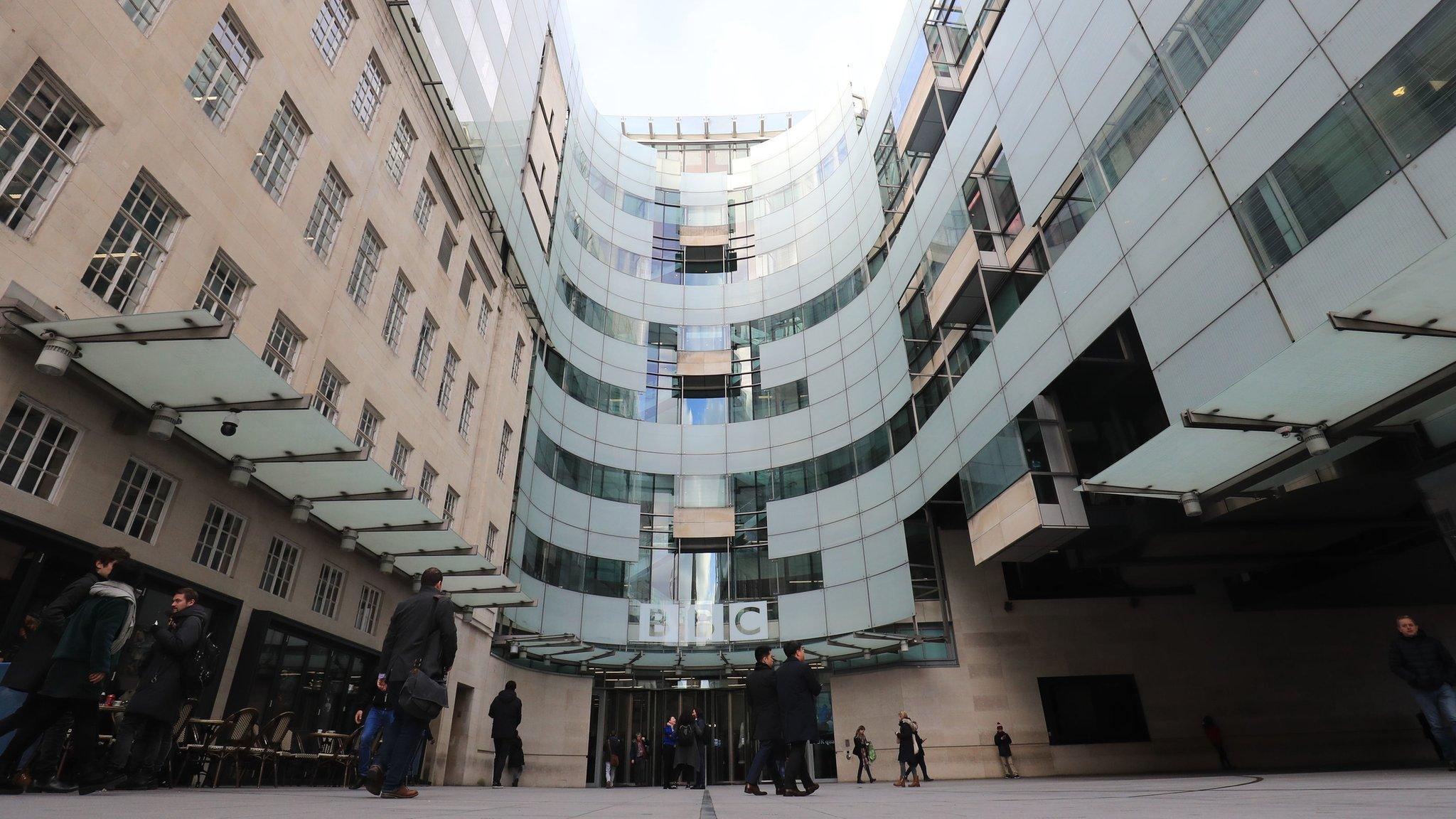
- Published25 August 2021
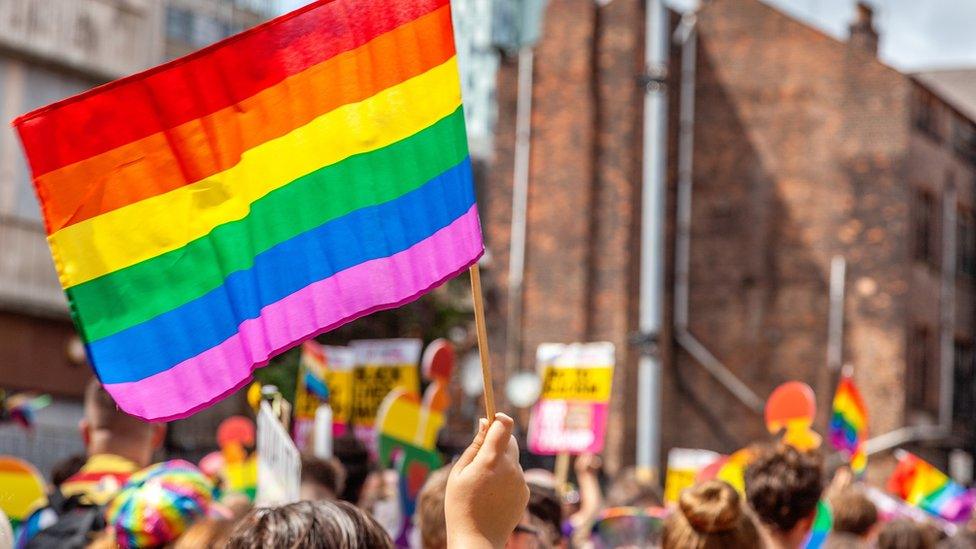
- Published29 May 2021
